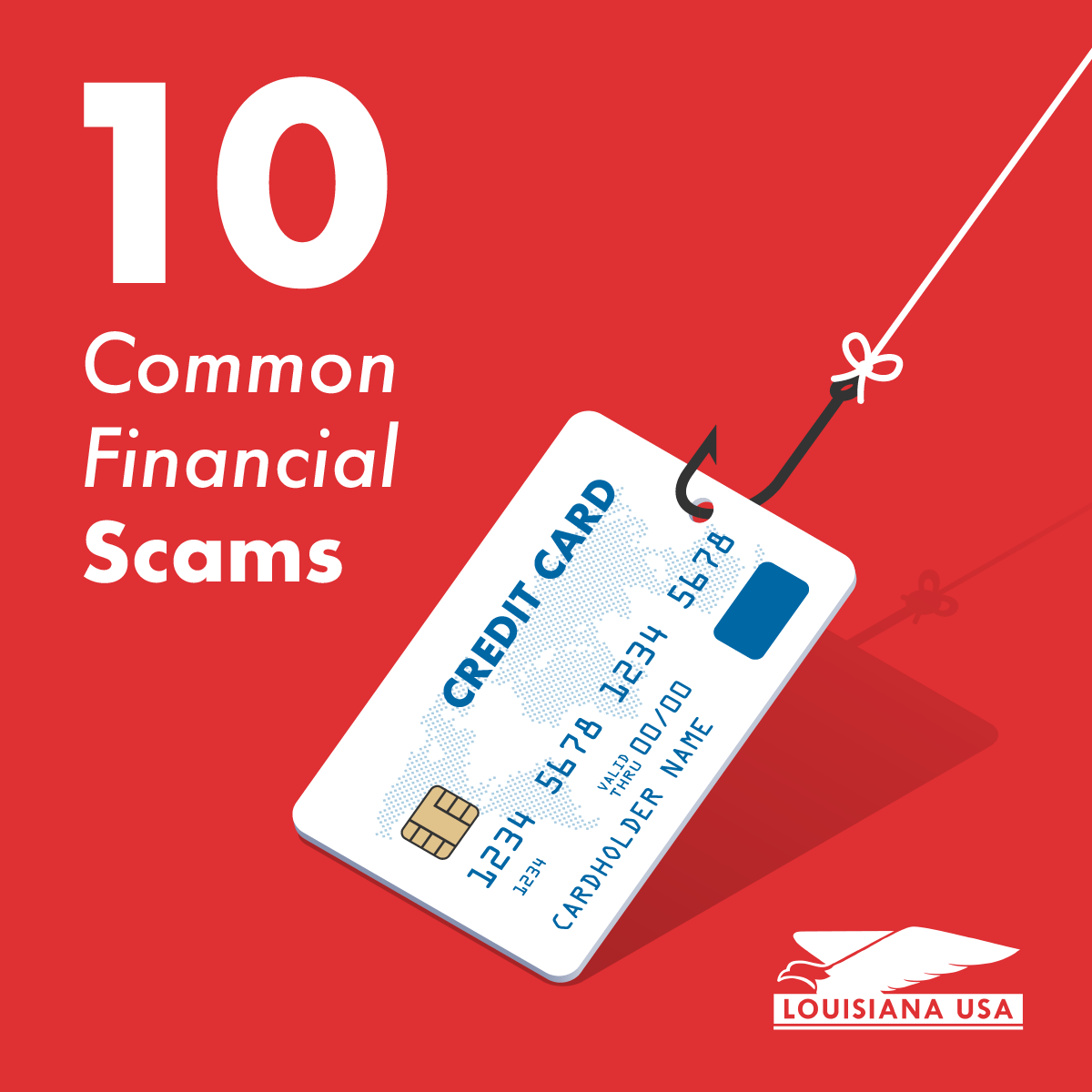
10 Common Financial Scams and How to Avoid Them
1. Telephone Scams
Telephone scammers use phone calls and text messages to steal your money or personal information. Phone scammers tend to make promises or threats when they’re trying to steal from you. It’s common for them to say you’ve won a prize, make fake promises or claim you’ll be arrested if you refuse to pay.
Avoid becoming the victim of telephone scams by registering your number with https://www.donotcall.gov/ and report all suspicious calls to ReportFraud.ftc.gov. We recommend that you immediately hang up the phone and don’t give out any personal information, such as usernames, passwords and bank account information.
2. Banking Scams
There are many forms of banking scams, but all of them involve scammers trying to access your bank account. Be on the lookout for counterfeit and unsolicited checks, emails asking for verification of your bank account information and companies offering automatic withdrawals from your bank account in order to qualify for a free trial or prize.
Avoid banking scams by never giving out your bank account information over email, phone or text, never depositing checks or many from strangers or companies you don’t have relationships with and never wire money to someone you don’t know.
3. Census-Related Fraud
Sometimes, scammers pretend to work for the Census Bureau in an attempt to steal personal information. They’ll use your information for fraud or to steal your identity.
Always verify surveyors by verifying their name in the Census Bureau’s Census Bureau staff directory or asking to see their badge. Never share your full social security number, banking information or mother’s maiden name (a common security question) with a potential surveyor as the Census Bureau never asks for this information.
4. Government Grant Scams
Government grant scammers often guarantee their victims government grants in exchange for bank account information. They do this under the guise of “depositing the grant money on your behalf” and withdrawing “one-time processing fees. Avoid these scams by remembering that government grants are very rarely awarded to individuals and never give out your bank account information to people you don’t know and trust.
5. Investment Scams
Investment scams influence victims to make investment decisions based on false information. These scams promise high rewards and low financial risk but almost always result in major losses. Research all investment opportunities and professionals before going into business with them. Remember, if a promise feels too good to be true then it probably is.
6. Ponzi Schemes
Ponzi Schemes are a common type of investment fraud. They rely on new investors to pay returns to current investors. Scammers must constantly recruit new investors to keep these schemes going, or they will run out of money to pay old investors and the scheme will collapse. Avoid investing in these scams by avoiding unlicensed professionals and firms and by reporting Ponzi schemes to the Securities and Exchange Commission (SEC).
7. Prize Scams
Prize scammers try to steal money or personal information from you under the guise of fake lotteries, sweepstakes and other contests. These scams can reach you via mail, email, phone call or text message.
When avoiding prize scammers, try and remember if you entered the contest they claim you have won. If you did, research the company and contact them to verify the prize is real.
8. Charity Scams
Charity scams happen when a scammer sets up a fake organization or charity, often taking advantage of a tragedy or disaster that is close to home. Protect yourself from these scams by always verifying the names of organizations you donate to and by never donating large sums in cash.
9. Pyramid Schemes
Pyramid schemes are marketed as multi-level marketing programs and other legitimate types of businesses. They encourage new recruits to pay investments and constantly recruit more members to increase their profits. Avoid getting involved and joining these scams by being aware of the warning signs of a pyramid scheme.
10. Ticket Scams
Ticket scams happen when scammers use fake tickets as bait to steal your money. This is common when you purchase a ticket to a concert, game or event but overpay or never receive the tickets. Protect yourself from these scams by only purchasing tickets from the venue box office or an authorized third-party seller.





